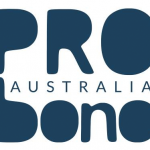Introducing the OPTIMUM NFP CARC Initiative

27 February 2018 at 7:45 am
The survival of your not-for-profit organisation will depend largely on its ability to adapt and to change in evolving market conditions, writes OPTIMUM NFP.
Of all the issues discussed by many in the Australian not-for-profit sector, at the forefront is the common-held view that the external environment within which you operate is an ever-changing landscape.
These external pressures are derived from many sources, and the work that we do at OPTIMUM NFP in the strategic planning and strategic thinking space with many such organisations, highlights fundamental issues which must be taken into consideration when seeking to ensure the ongoing sustainability of your not-for-profit organisation.
These pressures originate from numerous sources, and when they hit, as they invariably will, they are not mutually exclusive, but rather are somewhat interrelated, suggesting no single cause and effect relationship. They will challenge your staff, your boards and therefore your business models. If your organisation is ill-prepared to both understand these pressures as well as mitigate their impacts, then long-term sustainability may become an issue for your organisation.
Staff knowledge that has remained static over any number of years will be detrimental to your organisation. Boards that are not keeping abreast of market risks and opportunities will be a drag on your organisation. Business models that worked and delivered outcomes five years ago, may not be relevant as you move forward for the next five years. This points to “Change” and those not for profits that can successfully manage change in a dynamic environmental framework will best ensure their own sustainability.
David Rosenbaum, managing director of OPTIMUM NFP recently completed research which has been accepted by Macquarie University for the award of PhD. The research was embodied in his thesis entitled The Enduring Challenge of Change Management – New Perspectives From Nonprofit Healthcare Practice. The research resulted in publication of four articles in international journals as well as presentations at international and domestic conferences in Rome, Boston, Liverpool (UK), San Francisco, Amsterdam and Darwin.
David’s research identified a number of processes that support successful change management in this sector.
- It recognised the uniqueness of the NFP sector and its people;
- it identified the impact that such uniqueness had on sustainable change management; and
- it researched change from the perspective of people experiencing and managing it.
The research and its findings are important to the Australian not-for-profit sector for a number of reasons:
- Australian not-for-profit organisations are currently facing many challenges that question their very existence, in the provision of disability services, aged care services, employment services, community services, health, education, etc.
- Organisational survival will be dependent on the ability to change service delivery models, structures, and/or business models.
- Change failure will cost your organisation at a time when you can least afford it.
- The application of the findings of this research will ensure that people within your not for profit can cope with change.
The findings from this research have now been embodied in an OPTIMUM NFP service offering entitled the CARC Program (Cultural Assessment for Readiness to Change). The program addresses not only the extent to which your not for profit is in fact ready for change, but also identifies the key factors associated with its ability to maintain an environment of constant change.
The CARC Program is a flexible approach to understanding how staff within your not for profit will react to initial and ongoing change. Its key characteristics include:
- interview-based analysis that caters to all organisational sizes and settings;
- not a one-size-fits-all approach but rather reflects your organisation’s unique context, environment, people and requirements; and
- investment in the program is based on the number of staff interviewed, and therefore caters to all organisational sizes.
The following represents the six key steps in the CARC Program:
- Reach agreement of expectations and deliverables.
- Undertake a situational analysis from within the organisation.
- Create a change-success gap analysis.
- Identify detailed list of remedial actions.
- Undertake executive-level discussions.
- Complete a detailed change readiness report including a change action plan.
Further information as to the CARC Program can be found by following this URL – https://www.optimumnfp.com.au/programs/carc.html
Contact David Rosenbaum of OPTIMUM NFP at drosenbaum@optimumnfp.com.au or 0411-744-911 to further discuss this new initiative and how your not for profit may benefit from its implementation.
Keep an eye out for the forthcoming NFP Change Management Masterclass being held in Sydney on Wednesday 12 September 2018, where participants will be introduced to NFP specific change management approaches which have directly resulted from this ground-breaking research.
You can register your interest by following this URL – https://www.optimumnfp.com.au/masterclass.html









